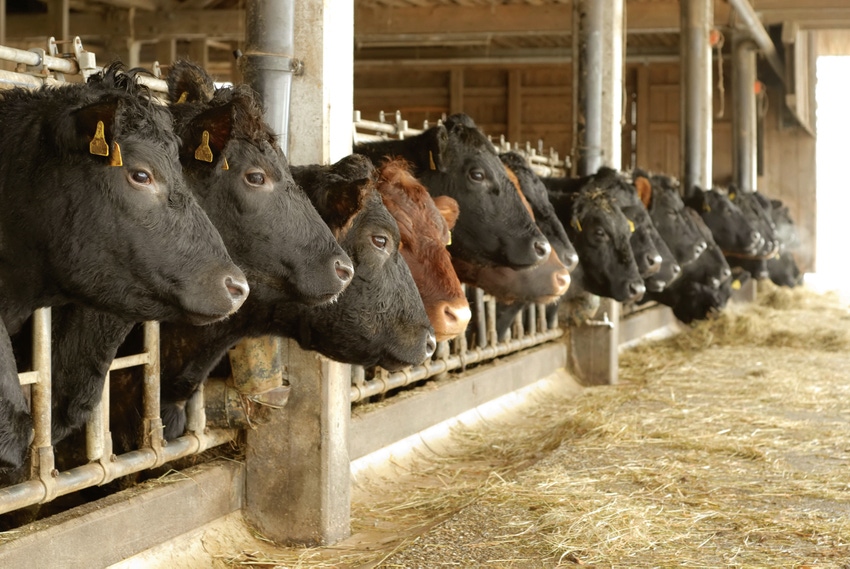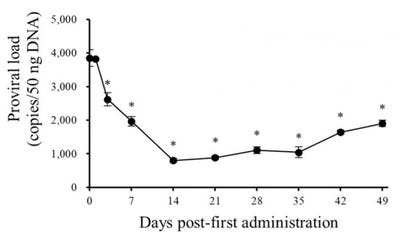BLV is a chronic viral infection affecting cows, with no effective vaccine or treatment currently.
August 1, 2019

Scientists have succeeded in reducing levels of the bovine leukemia virus (BLV) in cows with severe infections by combining an immune checkpoint inhibitor and an enzyme inhibitor, according to Hokkaido University in Japan, which suggested that the finding could be utilized to control other diseases in cattle and, perhaps, in people someday.
BLV infection is a chronic viral infection affecting cows that is endemic in many countries. At present, there is no effective vaccine or treatment.
In previous studies, the team, led by Satoru Konnai of Hokkaido University, demonstrated that the progression of bovine leukemia is closely related to immune suppression induced by immune checkpoint proteins such as PD-L1 and that an anti-PD-L1 antibody could effectively treat BLV-infected cows. However, the antibody alone was not effective in advanced cases with high BLV counts, the university said in an announcement.
Therefore, the researchers focused on prostaglandin E2 (PGE2), a bioactive substance that they discovered acted as an immune suppressor by upregulating PD-L1 in cows with a chronic Johne's disease.
In the present study published in The Journal of Immunology, the team first showed that blood PGE2 levels increased in BLV-infected cows as the disease progressed. They also found that a COX-2 inhibitor, which blocks the production of PGE2, activated immune response against BLV in cultured immune cells and that combining this with the anti-PD-L1 antibody boosted the immune activation effect, the announcement said.
Most importantly, cows administered the COX-2 inhibitor showed reduced viral loads, demonstrating its antiviral effect in the animals themselves. Administering both drugs, the COX-2 inhibitor and anti-PD-L1 antibody in combination, led to reduced viral loads in advanced-stage cows, the researchers reported.

"Our study showed that the drug combination has an antiviral effect in BLV-infected animals with high viral levels, which are a major source of infection on farms," Konnai said.
The researchers plan to conduct a larger verification experiment on BLV-infected cows and also study whether the drugs have any antibacterial and antiviral effects on other bovine diseases.
The study was conducted by researchers from Hokkaido University's Faculty of Veterinary Medicine and Research Center for Zoonosis Control, Hokkaido Research Organization's Agricultural Research Department, Tohoku University, Hokkaido Higashi Agricultural Mutual Aid Assn., Fuso Pharmaceutical Industries Ltd. and other institutions.
You May Also Like


.png?width=300&auto=webp&quality=80&disable=upscale)
